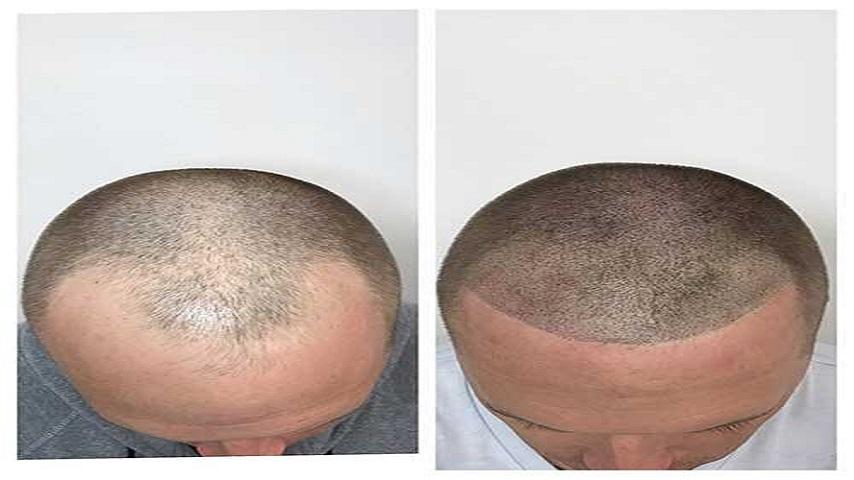Non-Surgical Hair Restoration: Why LLLT Is Gaining Popularity

Hair loss affects millions of people around the world, and the emotional toll it takes can be just as impactful as the physical change. While surgical hair transplants have long been the go-to solution for restoring hair, many individuals are now turning to non-invasive alternatives—and leading the charge is Low-Level Laser Therapy (LLLT).
LLLT, also known as red light therapy or cold laser therapy, is transforming the way we approach hair restoration. But why is this non-surgical method gaining such momentum in recent years? Let’s break it down.
What is LLLT?
Low-Level Laser Therapy (LLLT) is a painless, FDA-cleared treatment that uses red or near-infrared light to stimulate hair growth. The light energy penetrates the scalp at a cellular level, promoting better blood flow, reducing inflammation, and encouraging hair follicles to produce stronger, healthier strands.
LLLT can be administered through:
- In-clinic devices (like laser hoods or caps)
- At-home laser helmets, combs, or bands
Why Is LLLT Gaining Popularity?
Here are the top reasons LLLT is becoming a preferred choice for non-surgical hair restoration:
1. Completely Non-Invasive & Painless
One of the biggest draws of LLLT is that there are no needles, no incisions, and no downtime. It’s a completely painless procedure—unlike surgical transplants that require anesthesia, recovery time, and come with risks like infection or scarring.
For many patients who are wary of going under the knife, LLLT offers a safe and comfortable alternative.
2. Clinically Backed Results
Multiple clinical studies have shown that LLLT can:
- Improve hair density
- Increase hair strength
- Slow down hair loss
- Reactivate dormant hair follicles
In fact, the FDA has cleared LLLT devices for both androgenetic alopecia (pattern baldness) and thinning hair. When used consistently, most people start seeing results in 12 to 16 weeks.
3. Safe for Both Men and Women
Hair loss isn’t exclusive to men. Women also suffer from thinning hair due to hormonal changes, postpartum effects, stress, and medical conditions. LLLT is effective and safe for both genders, making it a more inclusive option than some medications that are not recommended for women.
4. Minimal Side Effects
Unlike oral medications such as finasteride or topical treatments like minoxidil, LLLT doesn’t interfere with hormones and has virtually no side effects. This makes it a great option for those who are sensitive to medications or prefer a chemical-free approach.
5. Convenience of At-Home Use
Thanks to technological innovation, you can now receive LLLT from the comfort of your home. FDA-approved devices like laser caps, combs, or bands are easy to use and require as little as 15–30 minutes per session, 2–3 times a week.
This flexibility has made it incredibly popular among busy professionals and those who prefer privacy during their treatment journey.
6. Boosts the Effectiveness of Other Treatments
LLLT doesn’t have to work alone. It’s often used as a complementary treatment alongside other hair restoration methods like PRP therapy, topical serums, or supplements. This synergistic approach can enhance results and improve overall scalp health.
7. Improves Scalp Health
Healthy hair starts with a healthy scalp. LLLT not only stimulates follicles but also:
- Increases microcirculation in the scalp
- Reduces inflammation
- Improves cell metabolism
- Creates a better environment for hair regrowth
Over time, users often report less scalp irritation, stronger roots, and shinier, thicker hair.
Who Is an Ideal Candidate for LLLT?
LLLT works best for:
- Individuals in early to moderate stages of hair thinning
- Those with androgenetic alopecia (male or female pattern hair loss)
- People looking to maintain hair post-transplant
- Individuals who want to avoid surgery or drug-based treatments
It may not be as effective for individuals with advanced hair loss or completely inactive follicles, so early intervention is key.
What to Expect from LLLT?
- Consistency is crucial. You need to stick with the treatment schedule to see noticeable results.
- Visible changes typically begin to show after 3–4 months of consistent use.
- Best results often appear after 6 months and continue to improve over time.
Remember: LLLT is not an overnight fix—but it works subtly, steadily, and safely.
Final Thoughts
As the demand for safe, effective, and non-invasive hair loss solutions rises, Low-Level Laser Therapy has clearly earned its spotlight. Whether you’re in the early stages of hair thinning or simply seeking to improve the health of your scalp, LLLT offers a science-backed solution without the pain or risk of surgery.
When Hair Loss Becomes Noticeable: Why a Transplant Might Be the Answer
Clear Scalp, Clear Mind: The Emotional and Physical Benefits of Dandruff Care
- Art
- Causes
- Crafts
- Dance
- Drinks
- Film
- Fitness
- Food
- Spiele
- Gardening
- Health
- Home
- Literature
- Music
- Networking
- Other
- Party
- Religion
- Shopping
- Sports
- Theater
- Wellness


